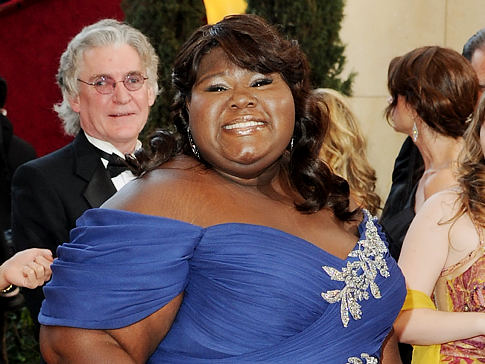
There is a clear dichotomy when it comes to fat people. One the one hard, we have the virtuously fat, who by no fault of their own are fated to live life in a fat body due to disease, genetics, or bad luck of the draw. On the other hand we have the fat people who are perceived to be “out of control,” guilty of the deadly sins of sloth and gluttony. Fat people must justify their existence by convincing fatphobes that they’re trying really hard not to be fat, but they just can’t permanently reach that Land of Thin. People love black-or-white scenarios, so they tend to want to place a fat person in one box or another. You’re either the object of pity or disgust, from both other fat people who buy into the dichotomy and society at large. Unless you have some kind of verifiable “excuse” to be fat—and that still doesn’t exempt you from experiencing discrimination and being the target of unchecked fatphobia—you’d better keep running in that hamster wheel of yo-yo dieting, weight loss and regain.
The plight of the fat celebrity illustrates our expectation that fat people should be constantly fighting the battle of the bulge, and we get a kick out of watching their weight rise and fall. From Oprah to Kirstie Alley, we are obsessed with the constant attempts to beat back the inevitable regain of weight. Kirstie Alley capitalized on our obsession by producing not one, but two shows focusing on her weight—one right before she lost all the weight, and one after she gained it all back. Oprah’s travails up and down the scale are legendary. Then we have the revolving door of Jenny Craig spokeswomen, such as Jennifer Hudson and Sarah Rue. So when a celebrity dares to proclaim that she’s happy at a weight considered fat, all hell breaks loose. Example: Gabby Sidibe.
Concern trolls hit paydirt in Gabourey Sidibe. Not only is the actress happy at her weight, she has the audacity to claim she’s sexy and deserves respect. So what is the establishment response? Mocking her, offering to help her lose weight, expressing disbelief that she’s actually happy and using her weight as a springboard to resuscitate a dead career. Just by daring not to get on the yo-yo diet bandwagon, she ignited a firestorm of condemnation and faux concern. Definitely not the behavior of a fat person who knows her place.
The fat acceptance movement in some ways hinders the dismissal of the good fat/bad fat dichotomy by encouraging fat people to defend themselves by pointing to the fact that they eat their veggies and exercise yet still cannot lose weight. It may be an unpopular position, but what about those who may not be so virtuous in their eating and exercise habits—do they not deserve equal acceptance? There needs to be room in the fat acceptance movement for those who may be fat by choice. It should be enough that we’re human to treat us with respect and dignity, regardless of the reasons why we’re fat.
Bill Fabtey says:
Absolutely right. Louderback, who wrote Fat Power in the early 1970’s, a powerful book that was before it’s time, used to say that in our society, “It’s OK to be fat, as long as you are trying to do something about it.” Louderback was one of several co-founders of NAAFA, the first size acceptance organization in the US, in 1969, and which still exists today!